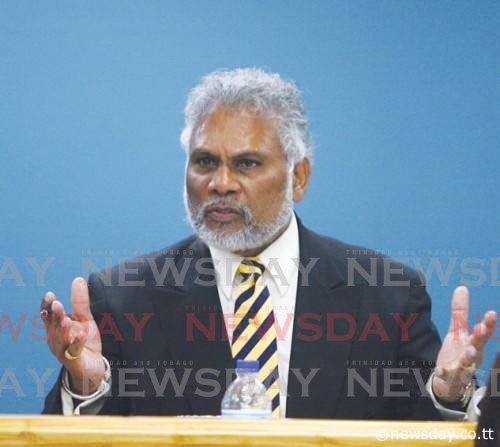Law Association intervenes in appointment of 'silk' lawsuit

THE Law Association has intervened in the interpretation claim on the appointment of senior counsel, or silk.
On Thursday, attorneys for the association sought permission from Justice Devindra Rampersad when the claim, filed in March, by prominent and outspoken attorney Israel Khan, SC, came up for hearing.
The judge gave directions for the filing of submissions and affidavits and adjourned the matter to November 24 for oral addresses.
Representing Khan are Ravi Heffes-Doon, Daniel Khan and Vincent Patterson. Representing the Attorney General is a team of attorneys led by Russell Martineau, SC, a former president of the association and an attorney general. Representing the association are attorneys Rajiv Persad, Ronnie Bissessar, Nabilah Khan, Jonathan Khan, Vishala Khadoo and Kavita Roop Boodoo.
In his interpretation claim, Khan is of the view that the appointment of senior counsel should not be done by the President on the advice of the Cabinet, a minister or the prime minister.
Instead, he says the President should make such appointments in her own discretion or on the advice of anyone, or authority, other than the Cabinet, including the chief justice.
In its application, the association said it was seeking to intervene as an interested party in the interpretation claim since, for several years, it been publicly and privately engaging stakeholders on the issue of appointment of attorneys to the rank of senior counsel.
Members of the previous council also met with the Attorney General in January, to discuss the issue, Roop Boodoo said in support of the application.
The association said the outcome of the matter will not only directly impact its membership but the wider public as they will be the ones to retain and depend on the wisdom of senior counsel.
It also said Khan’s claim on the breach of separation of powers goes to the heart of the administration of justice and the rule of law and all the issues raised in the claim fell squarely in its purview as set out by the Legal Profession Act.
The association also said the claim was novel as it raised important issues in public law and the future of the legal profession and it can provide a unique and useful contribution to the court.
Referenced in Khan’s claim was a report of its own committee, in 2015, which passed a resolution that the award of “silk” should be granted by the President on the recommendation of an independent panel. It also called for its recommendations to be immediately implemented.
The association’s resolution came after it compiled a report on the issue which strongly advocated for the independence of the profession and in particular the bar.
Senior counsel is a rank in the legal profession and recognises the status of an attorney which is recognised in common law and the Constitution. Those appointed senior-counsel status are also afforded precedence over other attorneys in the courts.
The claim questions if it was proper for the Cabinet to choose which attorney should get the honour of silk.
It referred to the position of the Attorney General, in pre-action correspondence, who maintained that senior counsel should be appointed by the President on the advice of the prime minister.
The 1964 legal notice set out the procedure for the appointment of what was then queen’s counsel, since TT had not yet become a republic. The 1964 notice said appointments were to be made by the governor general on the advice of the prime minister. When an application was received, the attorney general is then required to consult the chief justice, or “such other persons or bodies” he considers necessary, but is under no obligation to do so.
After such consultation, the AG is required to submit his recommendation to the prime minister, who will advise the President.
It was the AG’s position that the 1964 notice was saved law, not amenable to challenge, and he was bound by it.
Khan, however, says the notice did not purport to be a law, nor could it be saved law. Regardless, his claim says the 1964 notice was irrelevant.
It also said the independence of the bar was inimical to the rule of law and regulation of the profession, by Cabinet, to select silk was inconsistent with the Constitution and the powers it gives the President.

Comments
"Law Association intervenes in appointment of ‘silk’ lawsuit"